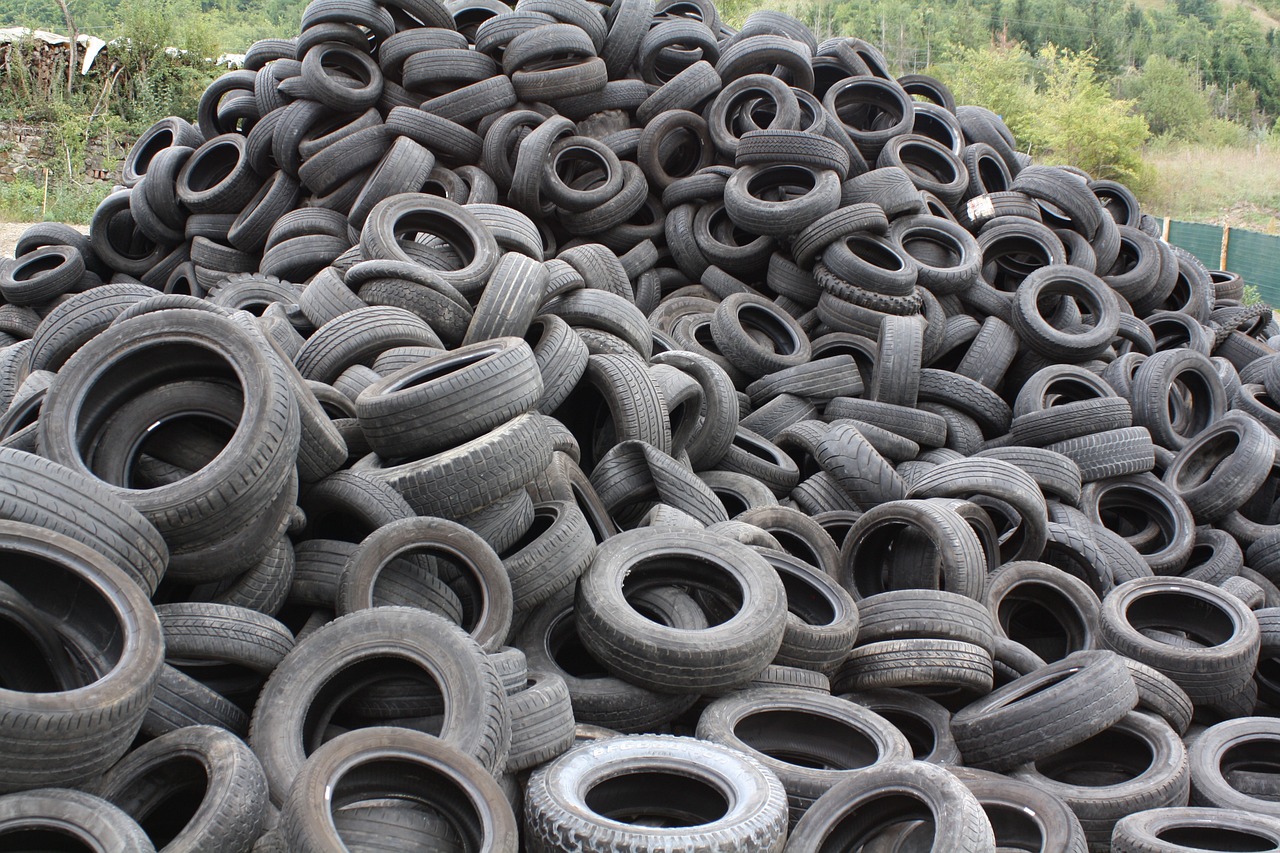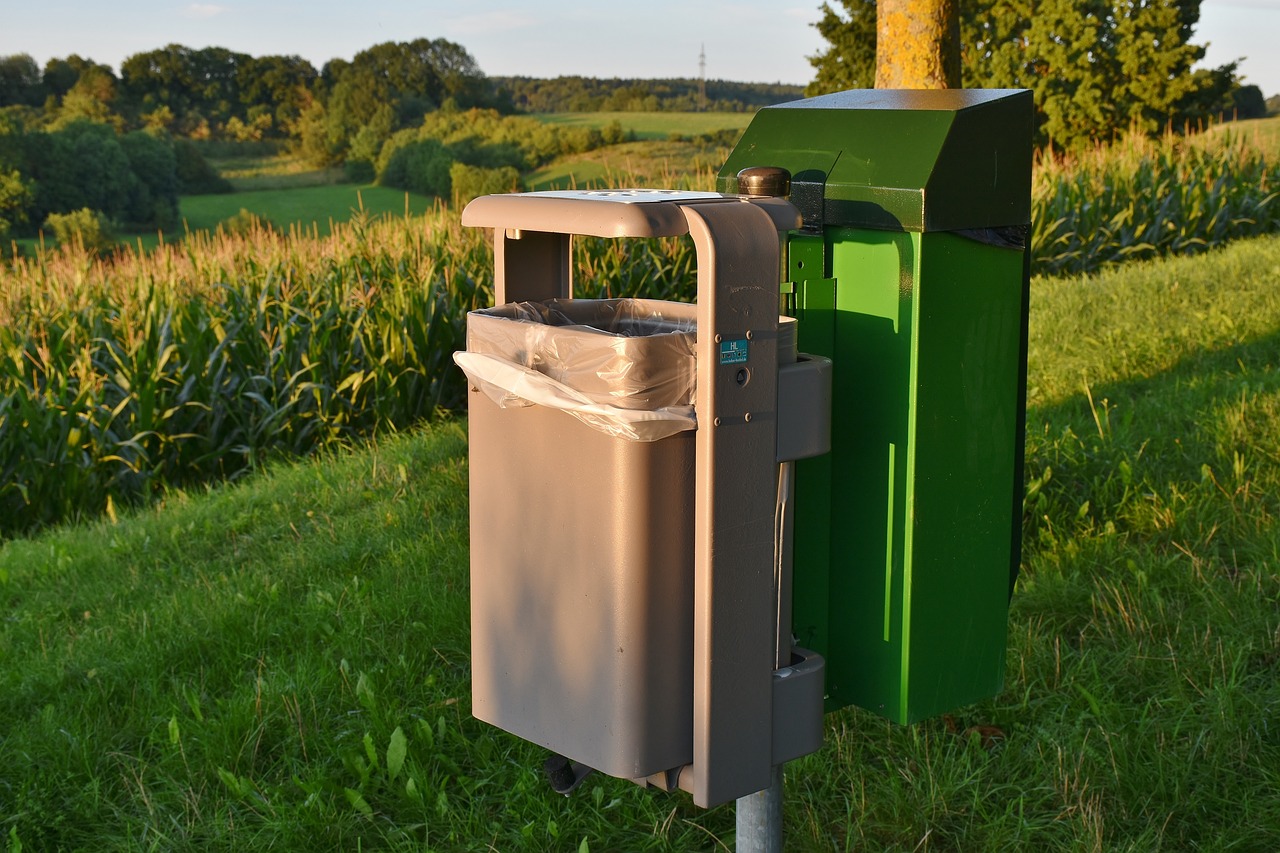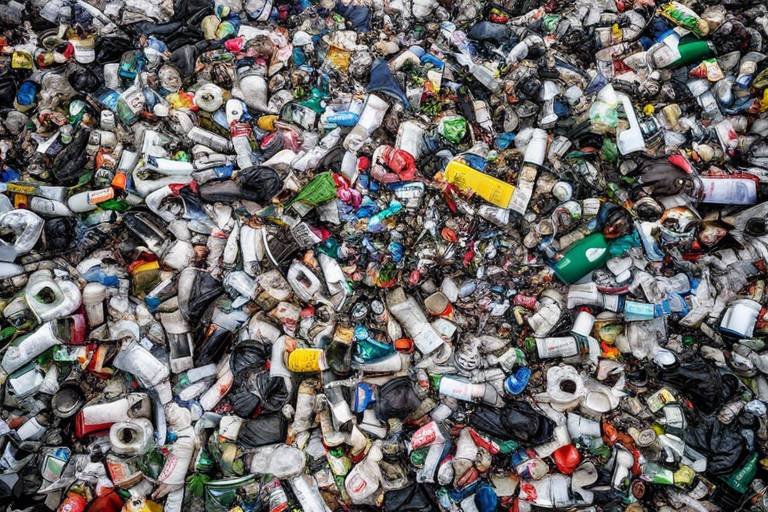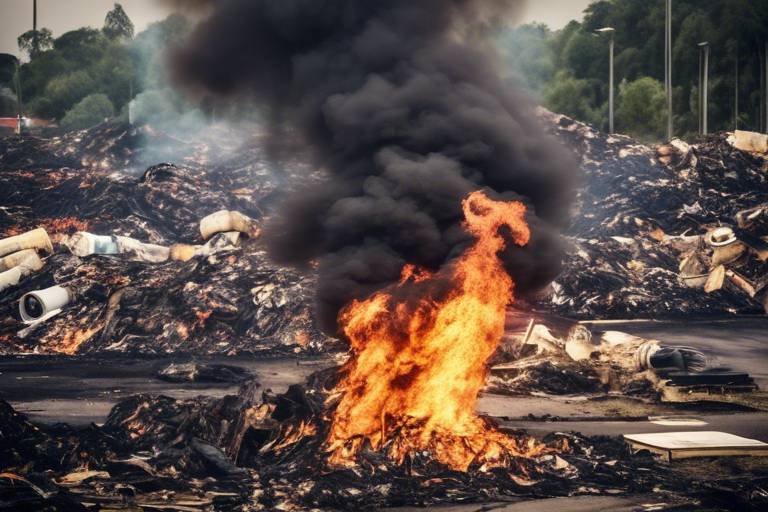Waste Management Ethics - A Closer Look
In today's world, where environmental concerns are at the forefront of global discussions, understanding waste management ethics is more critical than ever. Waste management isn't just about disposing of trash; it’s about making conscious decisions that affect our planet and future generations. The ethical considerations surrounding waste management involve a complex interplay of responsibilities among individuals, corporations, and governments. Each entity has a role to play in promoting sustainable practices and minimizing environmental impact.
Imagine for a moment a world where waste is not just discarded but valued. A world where every piece of trash is seen as a resource waiting to be transformed rather than a burden to be buried or burned. This perspective shift is what ethical waste management aims to achieve. By embracing this mindset, we can mitigate the devastating effects of pollution, conserve natural resources, and promote a healthier planet for all. Failure to address these ethical considerations can lead to dire consequences, such as increased pollution, health hazards, and a depletion of our planet's resources.
Moreover, ethical waste management encompasses not only the act of disposal but also how we produce and consume goods. It challenges us to rethink our habits and encourages a collective effort towards sustainability. The ripple effect of our actions can either harm or heal the environment, making it imperative that we approach waste management with a sense of responsibility and urgency. Are we doing enough to hold ourselves accountable for the waste we generate? This question should resonate with each of us as we navigate our daily lives.
Ultimately, ethical waste management is about stewardship. It’s about recognizing that we are caretakers of our environment, and with that comes the responsibility to make choices that reflect our commitment to sustainability. Whether it’s through reducing waste at the source, recycling, or supporting policies that promote ethical disposal practices, every action counts. As we delve deeper into the responsibilities of individuals, corporations, and governments, we’ll uncover the multifaceted nature of waste management ethics and the profound impact it has on our world.
Understanding the significance of ethical waste management is crucial for protecting the environment and public health. This section highlights the potential consequences of neglecting ethical considerations in waste disposal.
Corporations play a vital role in waste management ethics. This subheading examines how businesses can adopt sustainable practices and the ethical implications of their waste disposal decisions on society and the environment.
This section discusses various sustainable practices that companies can implement to minimize waste, reduce environmental impact, and promote ethical responsibility in their operations.
Recycling and reusing materials are essential components of sustainable waste management. This subheading explains the benefits and ethical considerations of these practices in reducing waste.
The reduction of single-use plastics is a vital ethical concern in waste management. This section explores the implications of plastic waste and strategies for minimizing its use in corporate settings.
Government policies significantly influence waste management practices. This subheading analyzes the role of legislation in promoting ethical waste disposal and ensuring accountability among waste producers.
Community engagement is essential for effective waste management. This section discusses the ethical implications of community participation in waste reduction initiatives and the benefits of local involvement.
Educational programs play a crucial role in raising awareness about waste management ethics. This subheading explores how community education can foster responsible waste practices and promote ethical behavior.
Volunteering for local clean-up initiatives is a practical way to engage with waste management ethics. This section highlights the importance of community action in promoting environmental stewardship and ethical waste practices.
Q: What is ethical waste management?
A: Ethical waste management refers to the responsible disposal and management of waste in ways that minimize environmental impact and promote sustainability.
Q: Why is community involvement important in waste management?
A: Community involvement is crucial as it fosters a sense of responsibility among individuals and encourages collective action towards reducing waste and promoting sustainable practices.
Q: How can corporations contribute to ethical waste management?
A: Corporations can contribute by implementing sustainable practices such as recycling, reducing single-use plastics, and adhering to government regulations aimed at minimizing waste.
Q: What role do government policies play in waste management?
A: Government policies establish regulations and standards that guide waste management practices, ensuring accountability and promoting ethical disposal methods.

The Importance of Ethical Waste Management
Understanding the significance of ethical waste management is crucial for protecting our environment and public health. Imagine a world where waste is managed responsibly—clean streets, thriving ecosystems, and a healthier population. But what happens when we neglect these ethical considerations? The consequences can be devastating. From polluted waterways to toxic landfills, the impact of poor waste management is felt by everyone. It’s not just about throwing things away; it’s about how we dispose of them and the lasting effects on our planet.
When waste is improperly managed, it can lead to a myriad of environmental issues. For instance, landfills emit harmful gases such as methane, a potent greenhouse gas that contributes to climate change. Additionally, leachate from these sites can contaminate nearby soil and water sources, posing serious health risks to local communities. The ethical implications are staggering—our choices today can determine the quality of life for future generations. It's not just about convenience; it's about responsibility.
Moreover, ethical waste management is intertwined with social justice. Communities that are often burdened by waste facilities tend to be marginalized, raising questions about equity and fairness. When we think about waste management, we must also consider who bears the brunt of its consequences. By adopting ethical practices, we can help ensure that all communities, regardless of their socio-economic status, have the right to a clean and safe environment.
Incorporating ethical waste management practices can also have significant economic benefits. Companies that prioritize sustainability often find themselves reaping rewards in the form of reduced costs and enhanced brand loyalty. Consumers today are increasingly aware of the impact of their choices and are more likely to support businesses that demonstrate a commitment to ethical practices. Thus, businesses that embrace ethical waste management not only contribute to a healthier planet but also position themselves favorably in the marketplace.
To summarize, the importance of ethical waste management extends far beyond the act of disposing of waste. It encompasses environmental protection, social equity, and economic viability. By making informed decisions and adopting responsible practices, we can pave the way for a sustainable future. The question remains: are we ready to take on this responsibility?
- What is ethical waste management? Ethical waste management refers to the responsible handling of waste in a way that minimizes environmental impact and promotes social equity.
- Why is waste management important? Effective waste management protects the environment, public health, and promotes sustainability.
- How can individuals contribute to ethical waste management? Individuals can reduce waste by recycling, composting, and supporting sustainable products and practices.
- What role do corporations play in waste management? Corporations are responsible for implementing sustainable practices in their operations and minimizing their waste output.

Corporate Responsibility in Waste Management
In today’s world, the concept of corporate responsibility is more than just a buzzword; it’s a vital part of how businesses operate. Companies are no longer just focused on profits; they are increasingly held accountable for their impact on the environment and society. Waste management is a critical area where corporate responsibility comes into play. The decisions made by corporations regarding waste disposal can have far-reaching consequences, not only for the environment but also for public health and community well-being.
When companies fail to consider the ethical implications of their waste management practices, they risk harming the environment and damaging their reputations. Imagine a factory that irresponsibly dumps waste into a river. The immediate effects may seem localized, but over time, the pollution can spread, affecting wildlife, water quality, and even the health of people living downstream. This scenario underscores the importance of ethical waste management; it’s not just about what happens to waste today but how those decisions ripple through time.
To navigate these ethical waters, businesses must adopt sustainable practices that reflect their commitment to social responsibility. This involves not only compliance with regulations but also going above and beyond to minimize waste and its environmental impact. Companies can implement strategies such as:
- Conducting Waste Audits: Regularly assessing waste generation helps identify areas for improvement.
- Setting Waste Reduction Goals: Establishing measurable targets encourages accountability and progress.
- Engaging with Stakeholders: Collaborating with employees, customers, and the community fosters a culture of sustainability.
Implementing these practices not only benefits the environment but can also enhance a company’s brand image. Consumers today are more informed and often prefer to support businesses that demonstrate a commitment to ethical practices. This shift in consumer behavior means that companies that prioritize waste management ethics can gain a competitive edge in the marketplace.
So, how can corporations effectively implement sustainable practices in waste management? It starts with a comprehensive approach that integrates sustainability into the core business strategy. Companies can look to various methods to minimize waste production, such as optimizing production processes, utilizing eco-friendly materials, and investing in technology that enhances recycling capabilities. The goal is to create a circular economy where waste is minimized, and materials are reused or recycled whenever possible.
Recycling and reusing materials are essential components of a sustainable waste management strategy. By recycling, companies can significantly reduce the amount of waste sent to landfills. Moreover, reusing materials not only conserves resources but also cuts costs associated with purchasing new materials. For instance, a manufacturing company that reuses scrap metal can lower its material costs while simultaneously reducing its environmental footprint. The ethical consideration here is clear: by recycling and reusing, businesses are taking responsibility for their waste and contributing to a healthier planet.
Another pressing ethical concern in waste management is the reduction of single-use plastics. These items, which are often used for mere minutes but can take hundreds of years to decompose, pose a significant threat to the environment. Companies can take proactive steps to minimize their reliance on single-use plastics by:
- Switching to reusable packaging options.
- Encouraging customers to bring their own containers.
- Implementing take-back programs for recyclable materials.
By addressing the issue of single-use plastics, corporations not only reduce their waste but also set an example for consumers, showing them that sustainable choices are possible and necessary.
While corporate responsibility is crucial, it’s also important to recognize the role of government policies in shaping waste management practices. Legislation can establish standards that hold companies accountable for their waste disposal methods, ensuring that ethical practices are not just optional but mandatory. By working hand-in-hand with government entities, businesses can help create a regulatory framework that promotes sustainability and environmental stewardship.
Q: Why is corporate responsibility in waste management important?
A: Corporate responsibility in waste management is essential because it helps protect the environment, public health, and enhances the company's reputation, leading to greater consumer trust and loyalty.
Q: What are some examples of sustainable practices companies can adopt?
A: Companies can conduct waste audits, set waste reduction goals, engage with stakeholders, and implement recycling and reuse initiatives to promote sustainability.
Q: How can reducing single-use plastics benefit a company?
A: Reducing single-use plastics can lower waste disposal costs, enhance brand image, and align the company with consumer preferences for sustainable choices.

Implementing Sustainable Practices
When we talk about sustainable practices in waste management, it’s not just a trend; it’s a necessity. Companies today face a growing pressure to not only boost their profits but to also act responsibly towards our planet. Implementing sustainable practices means integrating eco-friendly methods into every aspect of business operations. Imagine a world where businesses operate like a well-oiled machine, using resources efficiently while minimizing waste. Sounds ideal, right? But how do we get there?
First off, let’s take a closer look at what sustainable practices entail. It’s about more than just recycling; it’s a holistic approach that includes reducing, reusing, and recycling. These three principles form the foundation of sustainability. By reducing the amount of waste generated, reusing materials whenever possible, and recycling what can’t be reused, companies can significantly lessen their environmental footprint. For example, a manufacturing company could implement a system to track material usage, helping them identify areas where they can reduce excess waste.
Another crucial aspect is the adoption of innovative technologies. Businesses can leverage technology to streamline operations and reduce waste. Consider the use of digital tools for inventory management that minimize overproduction and waste. In fact, many companies are now using artificial intelligence to predict demand more accurately, which helps in producing only what is needed. This not only conserves resources but also cuts costs. Isn’t it fascinating how technology can aid in sustainability?
Moreover, collaboration plays a vital role in implementing sustainable practices. Companies can partner with suppliers who share their commitment to sustainability. This collaboration can lead to the development of a circular economy, where materials are continuously reused and recycled. For instance, let’s say a company that produces packaging materials collaborates with a recycling firm. Together, they can create a closed-loop system where used packaging is returned, recycled, and transformed into new packaging. This not only boosts the company’s green credentials but also fosters a sense of community responsibility.
To further illustrate the impact of sustainable practices, consider the following table that outlines the benefits of implementing such strategies:
| Benefit | Description |
|---|---|
| Cost Savings | Reducing waste leads to lower disposal costs and more efficient use of resources. |
| Enhanced Brand Image | Companies that adopt sustainable practices often gain a positive reputation among consumers. |
| Regulatory Compliance | Staying ahead of regulations can prevent fines and enhance operational efficiency. |
| Employee Engagement | Fostering a culture of sustainability can boost morale and attract talent. |
Now, let’s not forget about the importance of employee involvement in these sustainable initiatives. When employees are trained and engaged in sustainability efforts, they become advocates for change. This can create a ripple effect throughout the organization. Think of it as planting seeds; with the right nurturing, those seeds can grow into a robust culture of sustainability. Companies can organize workshops or training sessions that not only educate employees about sustainable practices but also encourage them to come up with their own ideas for reducing waste.
In conclusion, implementing sustainable practices is not just an option; it’s a responsibility that every business must take seriously. By embracing a comprehensive approach that includes reducing, reusing, recycling, leveraging technology, and fostering collaboration, companies can make a significant impact on waste management ethics. It’s about creating a future where businesses thrive while also caring for the planet. So, are you ready to take that step towards sustainability?
- What are sustainable practices in waste management? Sustainable practices in waste management include reducing waste generation, reusing materials, recycling, and adopting eco-friendly technologies.
- How can businesses reduce waste? Businesses can reduce waste by optimizing their production processes, using digital inventory management, and collaborating with suppliers committed to sustainability.
- Why is employee involvement important in sustainability efforts? Employee involvement fosters a culture of sustainability, encourages innovative ideas, and enhances overall commitment to eco-friendly practices.
- What technologies can help in waste management? Technologies such as artificial intelligence, data analytics, and digital inventory systems can help businesses minimize waste and improve efficiency.

Recycling and Reusing Materials
When we think about waste management, the concepts of recycling and reusing materials often come to mind as fundamental practices. These methods not only help to reduce the volume of waste that ends up in landfills but also play a crucial role in conserving our planet's resources. Imagine a world where instead of tossing away a plastic bottle, we could transform it into a new product, or better yet, use it again for its original purpose. This is the essence of recycling and reusing—turning potential waste into valuable resources.
Recycling involves processing used materials to create new products, which can significantly lessen the demand for raw materials. For instance, recycling aluminum saves up to 95% of the energy required to produce new aluminum from bauxite ore. This not only reduces energy consumption but also minimizes greenhouse gas emissions, making it a win-win for the environment. On the other hand, reusing means finding new ways to use items without having to process them again. Think about how a glass jar can become a storage container, or how old newspapers can be repurposed for arts and crafts. These practices embody the principle of sustainability, where we strive to keep materials in use for as long as possible.
But why should we care about these practices? The answer lies in the ethical implications of our waste choices. Every time we recycle or reuse, we are making a conscious decision to lessen our environmental footprint. Here are some key benefits of recycling and reusing:
- Resource Conservation: Recycling reduces the need for extracting, refining, and processing raw materials, which can be incredibly harmful to our ecosystems.
- Energy Savings: It often takes less energy to recycle materials than to create new products from scratch, leading to lower carbon emissions.
- Economic Benefits: Recycling and reusing can create jobs in the recycling and manufacturing industries, contributing to economic growth.
- Community Engagement: Involving communities in recycling initiatives fosters a sense of responsibility and awareness about environmental issues.
However, it's essential to understand that recycling and reusing are not just individual actions; they require a collective effort. Corporations can lead the way by implementing comprehensive recycling programs and encouraging their employees to embrace a culture of reuse. For instance, businesses can set up designated recycling stations and provide incentives for employees who actively participate in these initiatives. This not only enhances corporate responsibility but also sets a standard for ethical practices in waste management.
In conclusion, recycling and reusing materials are not merely buzzwords; they represent a vital shift in how we perceive waste. By integrating these practices into our daily lives and corporate policies, we can contribute to a more sustainable future. Remember, every small action counts. So next time you finish a product, ask yourself: Can I recycle this? Can I reuse it? The answers to these questions could lead to a healthier planet for generations to come.

Reducing Single-Use Plastics
In today's world, the issue of single-use plastics has become a hot topic, and for good reason. Every year, millions of tons of plastic waste end up in our oceans, landfills, and even our food chain. It's alarming to think that a simple item like a plastic straw or a shopping bag can have such a profound impact on our environment. The ethical implications are enormous, and as responsible citizens, we must address this pressing concern. So, how can we effectively reduce our reliance on single-use plastics in our daily lives and corporate practices?
One of the most effective ways to combat the issue of single-use plastics is through awareness and education. Many individuals and businesses simply don't realize the extent of the problem or the alternatives available to them. By promoting educational campaigns that highlight the environmental impact of these plastics, we can inspire individuals and corporations to make more informed choices. For instance, companies can implement training sessions for their employees, educating them about the benefits of using reusable products and the importance of reducing plastic waste. This creates a ripple effect, leading to a culture of sustainability within the organization.
Additionally, corporate responsibility plays a pivotal role in this battle. Businesses can lead by example by adopting policies that limit the use of single-use plastics. Here are a few strategies that companies can implement:
- Switching to Reusable Alternatives: Encourage employees to use reusable water bottles, coffee cups, and shopping bags. Not only does this reduce waste, but it also fosters a sense of community and responsibility.
- Implementing a Plastic-Free Policy: Companies can set a goal to eliminate single-use plastics from their operations within a certain timeframe. This could include banning plastic straws, cutlery, and plates at company events.
- Partnering with Eco-Friendly Suppliers: Businesses can choose to work with suppliers that prioritize sustainable practices, ensuring that the products they use are not contributing to plastic waste.
Moreover, governments and local authorities have a significant role to play in reducing single-use plastics. By implementing regulations and bans on certain plastic products, they can push businesses and consumers to seek alternatives. For example, many cities have already banned plastic bags, prompting shoppers to bring their own reusable bags. This not only reduces plastic waste but also raises awareness about the importance of sustainable practices.
In conclusion, the reduction of single-use plastics is not just an environmental necessity; it is an ethical obligation. By fostering awareness, implementing sustainable practices, and supporting legislative changes, we can collectively make a difference. It’s time to take action and embrace a future where our reliance on single-use plastics is a thing of the past. Together, we can create a cleaner, healthier planet for generations to come.
- What are single-use plastics? Single-use plastics are items designed to be used once and then discarded, such as plastic bags, straws, and cutlery.
- Why is reducing single-use plastics important? Reducing single-use plastics is crucial for minimizing environmental pollution, protecting wildlife, and promoting sustainable practices.
- How can individuals help reduce single-use plastics? Individuals can use reusable products, support businesses that prioritize sustainability, and participate in community clean-up initiatives.
- What role do businesses play in reducing plastic waste? Businesses can implement policies to limit plastic use, educate their employees, and partner with eco-friendly suppliers to promote sustainability.

Government Policies and Regulations
Government policies and regulations play a pivotal role in shaping how waste is managed across various sectors. They are not just bureaucratic measures; they are essential frameworks that guide both individuals and organizations toward more sustainable practices. Without these regulations, we risk entering a chaotic realm where waste is disposed of without consideration for environmental or public health implications. Think of it like a traffic light at an intersection; without it, chaos ensues, and accidents become inevitable. Similarly, effective waste management policies help prevent environmental disasters and promote responsible disposal methods.
One of the most significant aspects of government involvement in waste management is the establishment of laws and guidelines that dictate how waste should be handled, from its generation to its final disposal. These regulations can include:
- Landfill Regulations: Ensuring that landfills are operated in a manner that minimizes environmental impact.
- Recycling Mandates: Encouraging or requiring businesses and households to recycle a certain percentage of their waste.
- Hazardous Waste Management: Guidelines for the safe disposal of toxic materials to protect public health and the environment.
Moreover, government policies often include incentives for businesses to adopt sustainable practices. Tax breaks, grants, and subsidies can encourage companies to invest in greener technologies and waste reduction strategies. For instance, a company that implements a comprehensive recycling program may qualify for financial incentives that can offset the costs of such initiatives. This not only promotes ethical behavior among corporations but also fosters a culture of sustainability within the community.
To illustrate the impact of government regulations, consider the following table that outlines various countries and their waste management policies:
| Country | Policy Type | Description |
|---|---|---|
| Germany | Extended Producer Responsibility (EPR) | Manufacturers are responsible for the entire lifecycle of their products, including disposal. |
| Sweden | Waste-to-Energy | Policies that encourage converting waste into energy, significantly reducing landfill use. |
| Japan | 3R Policy (Reduce, Reuse, Recycle) | A comprehensive strategy to minimize waste and promote recycling at all levels. |
However, the effectiveness of these regulations often hinges on enforcement. Policies are only as good as their implementation; without proper oversight, even the best laws can fall flat. Thus, governments must allocate resources for monitoring compliance and ensuring that violators are held accountable. This includes regular inspections, reporting requirements, and penalties for non-compliance. A robust enforcement mechanism not only deters bad practices but also cultivates a culture of responsibility among waste producers.
In conclusion, government policies and regulations are the backbone of ethical waste management. They not only set the standards for waste disposal but also encourage individuals and businesses to adopt sustainable practices. As we continue to face pressing environmental challenges, it is essential for governments worldwide to strengthen these policies, ensuring a healthier planet for future generations.
Q: What are the main goals of waste management regulations?
A: The primary goals include protecting public health, minimizing environmental impact, and promoting sustainable practices.
Q: How do government policies influence corporate behavior in waste management?
A: Regulations can incentivize companies to adopt greener practices, ensuring they are held accountable for their waste disposal methods.
Q: What role does community involvement play in supporting government waste management policies?
A: Community engagement can amplify the effectiveness of these policies by fostering awareness and encouraging responsible waste practices among residents.

Community Involvement in Waste Management
When it comes to waste management, the **role of the community** cannot be overstated. In fact, community involvement is the backbone of effective waste management strategies. Think about it: when individuals come together, they can create a significant impact. Whether through local clean-up initiatives or educational programs, communities have the power to foster a culture of sustainability and responsibility. But what does this really mean for us as individuals? It means that we have a collective responsibility to ensure that our environment is protected, and that starts at the grassroots level.
One of the most compelling aspects of community involvement is the **sense of ownership** it generates. When people actively participate in waste management efforts, they begin to take pride in their surroundings. This pride translates into better waste practices, as individuals become more conscious of their impact on the environment. For instance, when a neighborhood organizes a clean-up day, participants not only remove litter but also develop a deeper understanding of the importance of keeping their community clean. This leads to a ripple effect, encouraging others to adopt similar behaviors.
Moreover, community involvement in waste management often leads to the development of **educational programs** that raise awareness about environmental issues. These programs can cover a wide range of topics, from the importance of recycling to the dangers of improper waste disposal. By educating community members, we empower them to make informed decisions that positively affect the environment. For example, schools can incorporate waste management topics into their curricula, teaching children about the significance of reducing waste from an early age. This creates a generation that is not only aware of environmental issues but also actively engaged in solving them.
Another key aspect of community involvement is the opportunity for **volunteering**. Engaging in local clean-up initiatives is a fantastic way for individuals to contribute to waste management efforts. These initiatives can be organized by local governments, non-profit organizations, or even community groups. By volunteering, individuals not only help clean their neighborhoods but also connect with like-minded people who share a passion for environmental stewardship. This sense of community can be incredibly motivating, as participants often inspire each other to continue their efforts long after the clean-up event ends.
To further illustrate the impact of community involvement, consider the following table that highlights some successful community initiatives around the world:
| Community Initiative | Location | Impact |
|---|---|---|
| Beach Clean-Up | California, USA | Removed over 10,000 pounds of plastic waste in one day. |
| Recycling Education Program | Toronto, Canada | Increased local recycling rates by 30% in one year. |
| Community Garden Project | London, UK | Transformed vacant lots into green spaces, promoting composting and reducing waste. |
As we can see, community involvement is not just a nice-to-have; it is essential for driving change in waste management practices. The combined efforts of individuals can lead to significant improvements in local environments, making communities cleaner and healthier. So, the next time you see a call for volunteers for a clean-up event or an educational workshop, consider participating. Your involvement could be the spark that ignites a larger movement towards sustainable waste management in your community.
- How can I get involved in my local community's waste management efforts? Look for local environmental groups or community centers that organize clean-up events or educational workshops.
- What are some simple ways to reduce waste at home? Start by recycling, composting food scraps, and reducing single-use plastics in your daily life.
- Are there any benefits to volunteering for clean-up initiatives? Absolutely! Volunteering helps improve your community, connects you with like-minded individuals, and raises awareness about environmental issues.

Educational Programs and Awareness
When it comes to waste management ethics, education is not just important; it’s essential! Imagine trying to navigate a maze without a map—confusing, right? That’s how many people feel about waste management. By implementing educational programs, we can provide individuals and communities with the tools they need to make informed decisions about waste disposal and sustainability. These programs can take various forms, from workshops and seminars to school curricula and community outreach initiatives.
One of the primary goals of these educational programs is to raise awareness about the impact of waste on our environment. Many people are unaware of how their daily choices contribute to larger environmental issues. For instance, did you know that a single plastic bottle can take up to 450 years to decompose? This shocking fact can serve as a powerful motivator for individuals to rethink their consumption habits. By sharing such information, educational initiatives can spark a change in behavior, leading to more responsible waste management practices.
Moreover, educational programs can foster a sense of community responsibility. When individuals understand the importance of their actions, they are more likely to engage in sustainable practices. This can include everything from participating in local recycling programs to volunteering for clean-up initiatives. Community involvement not only helps in waste reduction but also builds a stronger sense of connection among residents.
To illustrate the effectiveness of educational programs, let's take a look at a few successful initiatives:
| Program Name | Location | Description | Impact |
|---|---|---|---|
| Eco-Schools | Global | A program that integrates environmental education into the school curriculum. | Increased recycling rates and reduced waste in participating schools. |
| Keep America Beautiful | USA | A community-based initiative focused on litter prevention and beautification. | Enhanced community pride and reduced litter in public spaces. |
| Waste Wise | Australia | A program that helps businesses reduce waste through education and support. | Significant waste reduction in participating businesses. |
These programs not only educate but also inspire action. When people see tangible results from their efforts, it reinforces the importance of ethical waste management. It’s like planting a seed; with the right care and environment, it can grow into something beautiful. Educational initiatives create a ripple effect, encouraging others to join in and take responsibility for their waste.
In conclusion, educational programs and awareness campaigns are vital in promoting ethical waste management. They empower individuals with knowledge, foster community engagement, and ultimately lead to a more sustainable future. As we continue to face environmental challenges, the role of education in shaping our waste management practices cannot be overstated. It’s time to invest in our future by prioritizing education on waste management ethics!
- What are the main goals of educational programs in waste management?
Educational programs aim to raise awareness about waste issues, promote responsible practices, and foster community involvement. - How can I get involved in local waste management initiatives?
You can participate by attending community workshops, volunteering for clean-up events, or joining local environmental organizations. - Why is reducing waste important?
Reducing waste helps minimize environmental impact, conserves resources, and promotes a healthier planet for future generations.

Volunteering for Clean-Up Initiatives
Volunteering for clean-up initiatives is more than just picking up litter; it’s a powerful act of environmental stewardship that can have a lasting impact on our communities and the planet. When individuals come together to clean up parks, beaches, and neighborhoods, they not only beautify their surroundings but also foster a sense of community and responsibility. It's like planting seeds of change—each piece of trash picked up is a step toward a cleaner, healthier environment. But why is this act so crucial?
First and foremost, clean-up initiatives help address the **immediate** problem of waste accumulation. When trash piles up, it doesn't just look bad; it can also harm wildlife, pollute waterways, and pose health risks to people living nearby. By volunteering, you play a direct role in mitigating these issues. It's a bit like being a superhero for the environment—every effort counts, and you can make a difference.
Moreover, participating in these initiatives often leads to increased awareness about waste management and environmental ethics. As volunteers, individuals engage in conversations about the importance of proper waste disposal, recycling, and reducing single-use plastics. This dialogue can inspire others to adopt more sustainable practices in their daily lives. Imagine a ripple effect where one clean-up day leads to a community-wide commitment to reduce waste! This is the power of collective action.
In addition to the environmental benefits, volunteering for clean-up initiatives can also be a rewarding experience on a personal level. It offers an opportunity to meet like-minded individuals who share a passion for the environment. These connections can lead to lasting friendships and a sense of belonging within your community. Plus, there’s something inherently satisfying about seeing the immediate results of your hard work. It’s like completing a puzzle; the pieces come together to reveal a beautiful picture of a cleaner, healthier space.
To further illustrate the impact of volunteering, consider the following statistics:
| Year | Volunteers | Trash Collected (lbs) |
|---|---|---|
| 2020 | 500 | 10,000 |
| 2021 | 750 | 15,000 |
| 2022 | 1,000 | 25,000 |
This table shows how volunteer participation has grown over the years, along with the increasing amount of trash collected. As you can see, more hands lead to bigger results. The engagement of just a few volunteers can lead to significant changes in the community’s cleanliness and environmental health.
In conclusion, volunteering for clean-up initiatives is an essential way to engage with waste management ethics. It empowers individuals to take action, fosters community spirit, and promotes awareness about sustainable practices. So, why not grab a friend and join a local clean-up event? Together, you can make a difference, one piece of trash at a time!
- What should I bring to a clean-up event? It’s best to wear comfortable clothes and sturdy shoes. Bring gloves, trash bags, and water to stay hydrated.
- Are clean-up initiatives suitable for all ages? Absolutely! Many events are family-friendly and can accommodate participants of all ages.
- How can I find local clean-up events? Check community boards, social media, or websites dedicated to environmental initiatives in your area.
Frequently Asked Questions
- What is ethical waste management?
Ethical waste management refers to the responsible disposal and treatment of waste, taking into account the environmental impact and the health of communities. It involves actions that minimize waste generation, promote recycling, and ensure that waste is handled in a way that protects both people and the planet.
- Why is ethical waste management important?
It's crucial because neglecting ethical considerations in waste disposal can lead to severe environmental degradation, public health issues, and loss of biodiversity. By prioritizing ethical waste management, we can create a healthier planet and a sustainable future for generations to come.
- How can corporations contribute to ethical waste management?
Corporations can adopt sustainable practices such as reducing waste at the source, recycling materials, and minimizing the use of single-use plastics. By making informed decisions about waste disposal and actively engaging in sustainable practices, businesses can significantly reduce their environmental footprint.
- What are some sustainable practices that companies can implement?
Companies can implement a variety of sustainable practices, including:
- Investing in recycling programs
- Utilizing biodegradable materials
- Encouraging employee participation in sustainability initiatives
- Conducting regular waste audits to identify areas for improvement
- How do government policies impact waste management ethics?
Government policies play a vital role in shaping waste management practices. By implementing regulations that promote ethical waste disposal, governments can hold waste producers accountable and encourage sustainable practices across various sectors.
- What is the role of community involvement in waste management?
Community involvement is essential for effective waste management. Local participation in waste reduction initiatives fosters a sense of responsibility and stewardship, leading to more sustainable practices and greater awareness of the importance of ethical waste management.
- How can educational programs help in promoting waste management ethics?
Educational programs raise awareness about the importance of ethical waste practices. They can teach individuals about the consequences of poor waste management and empower them to make informed decisions that contribute to a healthier environment.
- What are some ways to volunteer for clean-up initiatives?
Individuals can volunteer for clean-up initiatives by joining local environmental groups, participating in community events, or organizing their own clean-up days in parks, beaches, or neighborhoods. Engaging in these activities not only helps the environment but also builds community spirit.



















